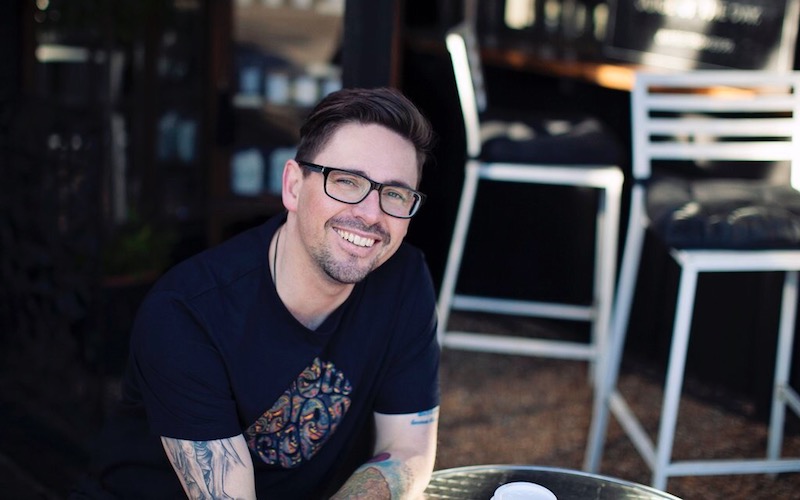“I’m fine.” That is the response given by seven in ten Londoners struggling with mental health problems when asked how they are, according to new research.
Time to Change, the mental health anti-stigma campaign behind the findings, is calling on people to ‘Ask Twice’ if they suspect a friend or family member is battling a mental health issue to help them open up.
“I was suicidal every day,” said James Martin, 44, from Morden. “I had made my plan. I knew the tree I was going to hit on the M40, it was my daily commute and I just needed the right time to do it.
“It was completely out of body. I remember I was lying under my duvet and my sister and my wife were both talking to me and I knew I should say something, I knew I should come out from the covers but I was almost trapped.
“It’s like locked in, I am there, but I just can’t communicate. It’s constrictive, like a weight that stops communication.”
James (pictured above) who works as a manager at a car hire company, has lived with anxiety and depression for 25 years.
About eight years ago he had a full mental breakdown when he collapsed at work with a panic attack.
He spent six months in a mental health hospital and has fought hard to live with his diagnosis and live as normal a life as possible.
Although he still experiences regular bouts of anxiety and depression, he still works for the same company and hasn’t had a day off in the eight years since his breakdown.
He said of the ‘Ask Twice’ campaign: “I know that if I had had someone doing that I wouldn’t have reached the depths that I did.
“The ‘Ask Twice’ campaign has been a game changer for the people I’ve talked to because it really is that, ‘let’s just be interested in each other – your colleague, your work mate, your friend. Take that 5 minutes, take that time to say, are you ok’?”
James is now touring his company’s regional offices, telling his story and encouraging people to talk about mental health at work.
“It’s the most isolating and lonely place to be and then you realise just how many people relate,” said Matthew Williams, 44, from Middlesborough.

ASK TWICE: Matthew Williams, 44, now leads on work around mental health
He added: “It was horrendous, my head was pounding like it was in a vice, my temples buzzed, and I would sweat and shake and couldn’t sleep.
“One word that summed it up: terror, I was terrified to face anyone and anything.”
Matthew has lived with depression and anxiety for more than a decade.
His first bout of depression was in 2006, shortly after his wife miscarried with their first child on New Year’s Day, a time which he describes as horrendous.
He said that at the time friends really didn’t know what to do and that people around him could have dealt with things better.
The campaign highlights that asking ‘How are you?’ can lead to throwaway small talk and simply repeating the question with interest may help people talk about their issues.
In the national survey of 2,000 people, when asked why people said they were ‘fine’ half of respondents in London said, ‘just because people ask how you are, doesn’t mean they really want to know’ and 50% said ‘I don’t want to burden people’.
This is a sentiment Matthew acknowledged: “You don’t want to put people in a position with something they can’t do anything with.
“At times I really did feel on my own, it’s important people check in and knowing they still care.”
Matthew now works for England Boxing and leads on work around mental health, supporting the 1 in 4 people living with a mental health problem in a given year.
Director of Time to Change, Jo Loughran, said: “We all hear it dozens of times a day: ‘How are you?’ ‘Fine thanks, how are you?’
“Asking twice is a simple, effective way to show our friends and family members that we are asking for real; that we are ready to listen, whether that’s now or whenever they’re ready.”
For more information visit www.time-to-change.org.uk/asktwice




